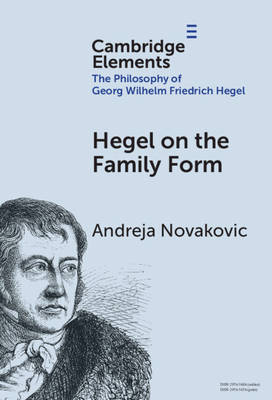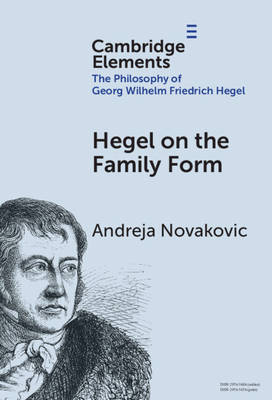
- Afhalen na 1 uur in een winkel met voorraad
- Gratis thuislevering in België vanaf € 30
- Ruim aanbod met 7 miljoen producten
- Afhalen na 1 uur in een winkel met voorraad
- Gratis thuislevering in België vanaf € 30
- Ruim aanbod met 7 miljoen producten
Zoeken
Omschrijving
Hegel famously argues that the patriarchal, bourgeois nuclear family is a rational institution worth defending. Scholars have asked what exactly to do with this seemingly outdated part of his social and political philosophy. In particular, they have wondered whether Hegel's concept of the family can accommodate changes to our understanding of what counts as a family and what constitutes family relations. In this Element, I ask whether Hegel's defense of the family can be reconciled with family abolition, the project not of reforming the family as an institution, but of radically transforming it beyond recognition. By examining the three relationships that Hegel associates with the family - brothers and sisters, husbands and wives, and parents and children - I argue that Hegel's concept of the family can be reconciled with family abolition so described. What Hegel provides is an account of the family as a site at which important goods have been discovered and eveloped, without claiming that the family as an institution is necessary for, or even ideally suited to, their continued realization. These goods are singular individuality, ethical love, and material resources.
Specificaties
Betrokkenen
- Auteur(s):
- Uitgeverij:
Inhoud
- Aantal bladzijden:
- 75
- Taal:
- Engels
- Reeks:
Eigenschappen
- Productcode (EAN):
- 9781009586764
- Verschijningsdatum:
- 31/01/2026
- Uitvoering:
- Hardcover
- Formaat:
- Genaaid
- Gewicht:
- 5 g

Alleen bij Standaard Boekhandel
+ 158 punten op je klantenkaart van Standaard Boekhandel
Beoordelingen
We publiceren alleen reviews die voldoen aan de voorwaarden voor reviews. Bekijk onze voorwaarden voor reviews.







